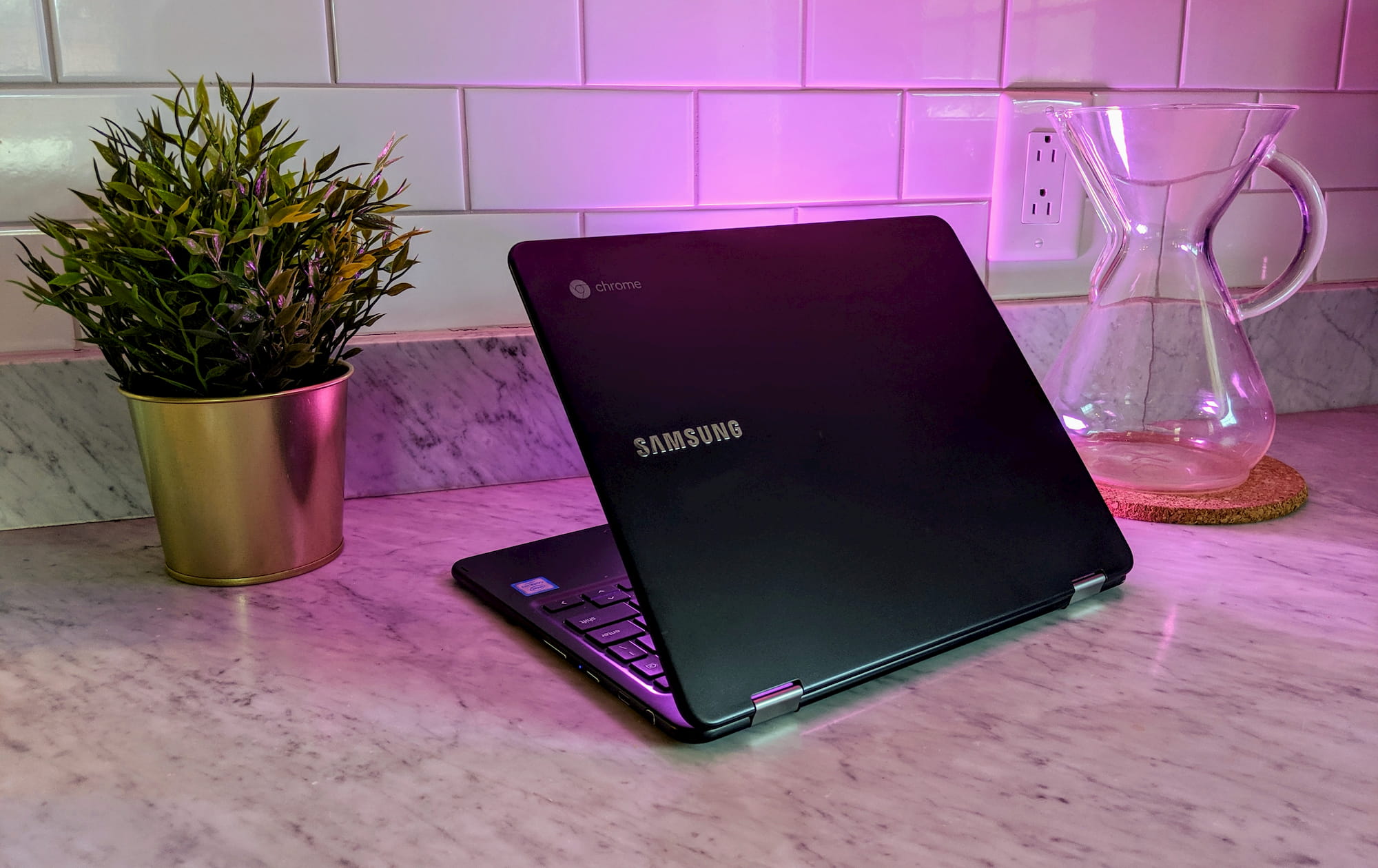
We’ve been tracking the Chromebook known only as ‘Kohaku’ for many months at this point. Based on a number of reasons like Samsung email addresses all over the commits, the device containing a Samsung-made battery, multiple references back to ‘Caroline’ (the Samsung Chromebook Pro), and references to a removable stylus, we’re quite sure ‘Kohaku’ is the Samsung Chromebook Pro V2. What we still don’t know is when Samsung plans on bringing this Chromebook to market.
With today’s Geekbench search result first spotted over at MSPoweruser, we can at least know that this new Chromebook shouldn’t be too far away. In general, when we see Geekbench scores showing up, we’re within the two month window of a device debut. We’ve seen instances where a score shows up insanely early and we’ve seen scores show up insanely late. Take ‘Nautilus’ for example; Samsung released the Samsung Chromebook Plus V2 in June of 2018 and the first Geekbench result for it is dated April of 2018. The Pixel Slate debuted in Geekbench on October 2nd last year, was announced on the 9th of that same month, and went on sale by mid-November.
It is safe to say that once we see a device getting benchmarked in Geekbench, there’s a solid chance we’ll be able to actually get our hands on it within the next 8 weeks. That doesn’t mean that Samsung won’t announce it or stand up a landing page before then. It simply means we likely won’t see this Chromebook launch until sometime in November, just in time for the holiday shopping rush.
What Is Revealed In The Benchmark

A few things of note, here, as we look at the actual benchmark result. First up, you’ll notice the baseboard as ‘Hatch’ with the motherboard listed as ‘unprovisioned_kohaku’. That makes sense as ‘Hatch’ is the unibuild board spawning many Chromebooks we expect to see this fall with the Comet Lake chipset on board like ‘Kohaku’. Speaking of Comet Lake, this benchmark also confirms that these Comet Lake Chromebooks can definitely be referred to as 10th-gen Intel devices, though there was some confusion about exactly what generation Comet Lake even was in light of Ice Lake launching. Confused? We are too when it comes to Intel.
The U in the processor model name indicates a powerful chipset, but also one that will require a fan. As Samsung’s last few Chromebooks have opted for fanless chips, this move is definitely a bit of a departure for them in the right direction. With the Samsung Chromebook Plus V2 having a fanless Y-series Core m3 option, it would be a tad silly for a Chromebook with “Pro” in the name to not have a much faster processor on board. If the 8th-gen Core i3 devices like the HP Chromebook x360 and Lenovo Yoga C630 are any measure of this new chip’s ability, we’re in for some serious power with these 10th-gen processors.
Shop Samsung Chromebooks on Amazon
Finally, we see 8GB of RAM in this particular Chromebook and that is a welcome sight. That isn’t to say we won’t see Samsung try and ship a 4GB model, but I hope they don’t. Believe it or not, there was a time when the standard for Chromebook RAM was 2GB and it wasn’t that long ago. We’ve moved that needle to 4GB of late, but I really feel like it is time for it to move again for Chromebooks in the $400-$600 segment. 8GB or 16GB should be the options when buying anything but bargain devices in my opinion.
So, there you have it. A bit more behind the curtain on Samsung’s upcoming Chromebook Pro V2. Based on some of the hardware Samsung has been putting out lately with their Windows and Android devices, it is safe to assume we are all very excited to see what they come up with in the Samsung Chromebook Pro V2. It looks like we don’t have too much longer to wait.

Leave a Reply
You must be logged in to post a comment.